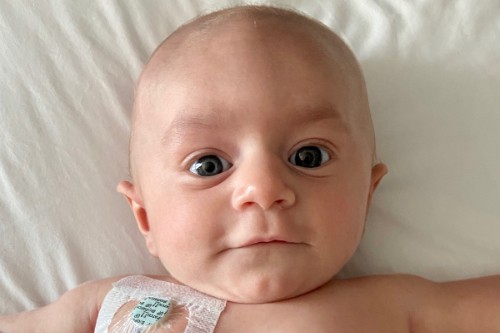Condition
Pediatric Severe Combined Immunodeficiency (SCID)
What You Need to Know
Severe combined immunodeficiency (SCID) is a very rare disease that causes a child to have a very weak immune system.
Common Infections
Symptoms of SCID usually start within the first year of a child’s life. Common infections include:
Diagnosis
Doctors typically diagnose SCID by:
- Your healthcare provider will ask about your child’s symptoms and health history
- Physical examination
- Blood tests
Treatment
Treatment may include:
- Treating the current infection
- Avoiding germs and preventing new infections
- Bone marrow transplant
Schedule an Appointment
Our pediatric specialists provide personalized care for your child’s physical, mental and emotional health needs. Meet the providers who treat SCID and schedule an appointment today.
Frequently Asked Questions
Prevention and Risk Assessment
What is SCID in children?
What causes SCID in a child?
Can SCID be prevented in children?
Diagnosis
How is SCID diagnosed in a child?
What are the symptoms of SCID in a child?
Treatment
How is SCID treated in a child?
Parker's Story
After an uneventful pregnancy and birth, Tiffany Green was looking forward to bringing son, Parker James Cameron, home to bond with her and his sisters. But a week after Parker's birth, Green learned something unsettling. Parker had no immune system in the middle of the COVID-19 pandemic.
Departments that Treat Severe Combined Immunodeficiency

Pediatric Bone Marrow Transplantation for Metabolic and Immune Disorders
While BMT is often used for treating cancers, it can also be used to treat non malignant disorders, such as problems with the immune (defense) system and inborn errors of metabolism. Learn how we can help children with these conditions.

Help Kids and Make a Difference
Invest in future cures for some of life's most devastating diseases. Give today to help more children grow up stronger.






